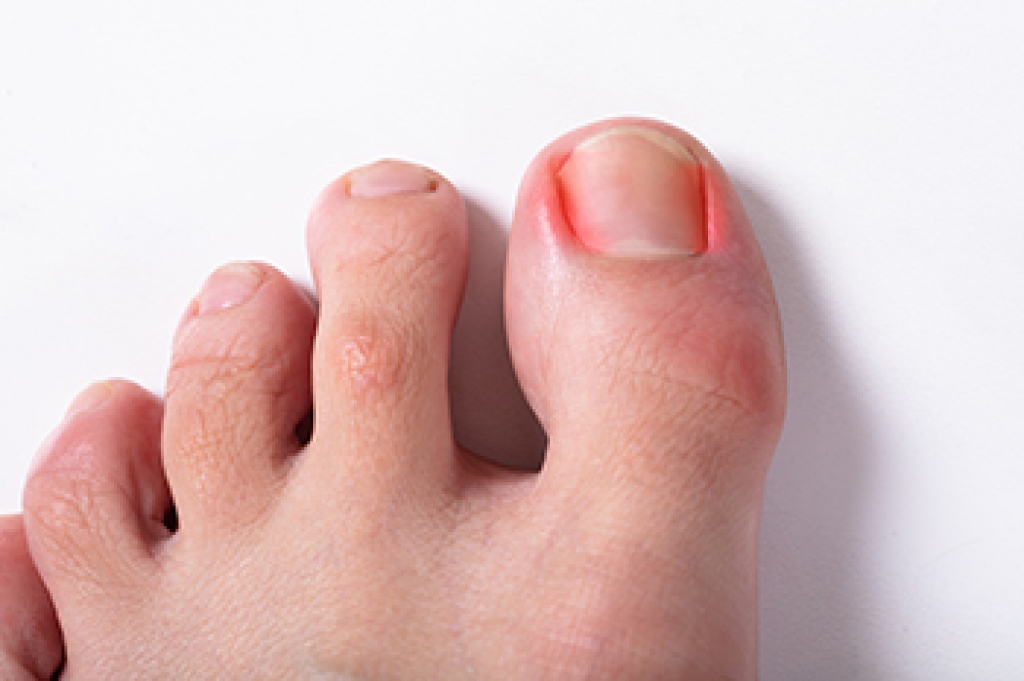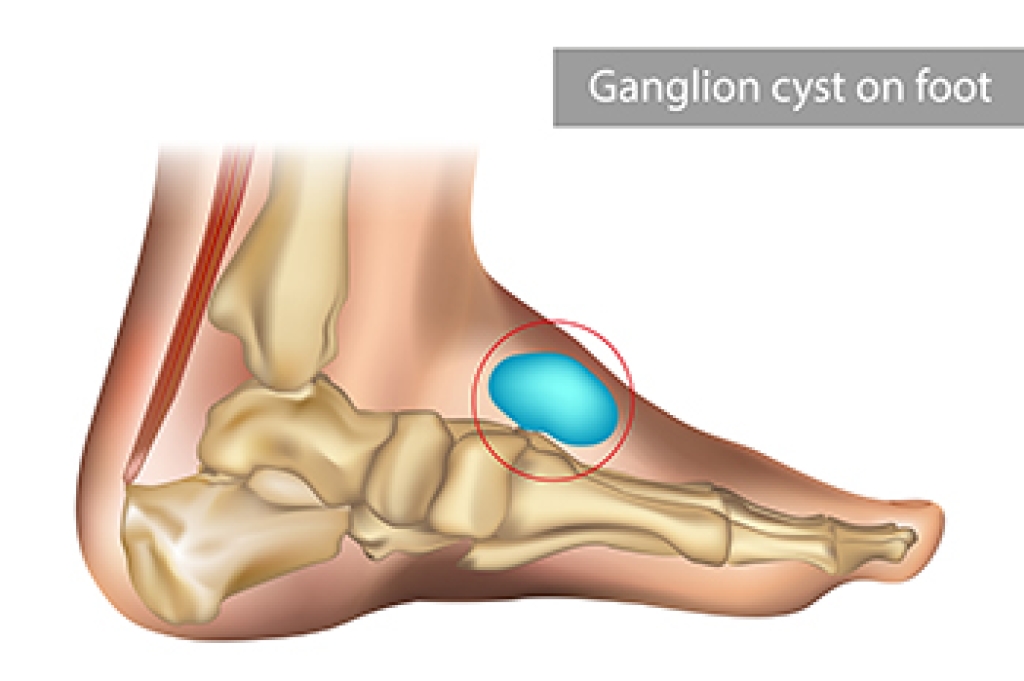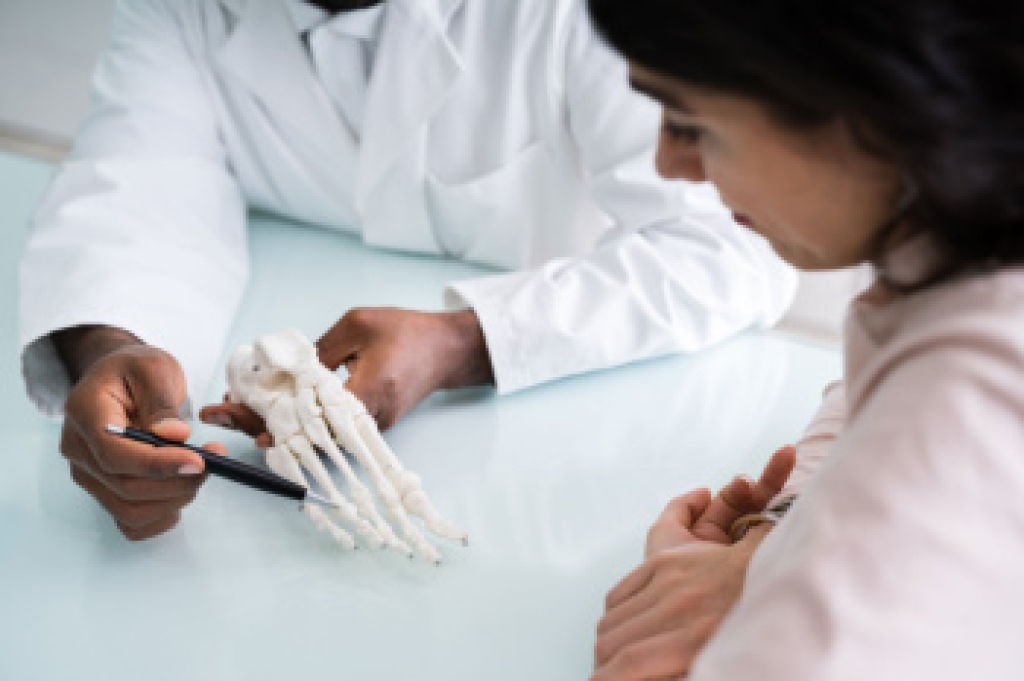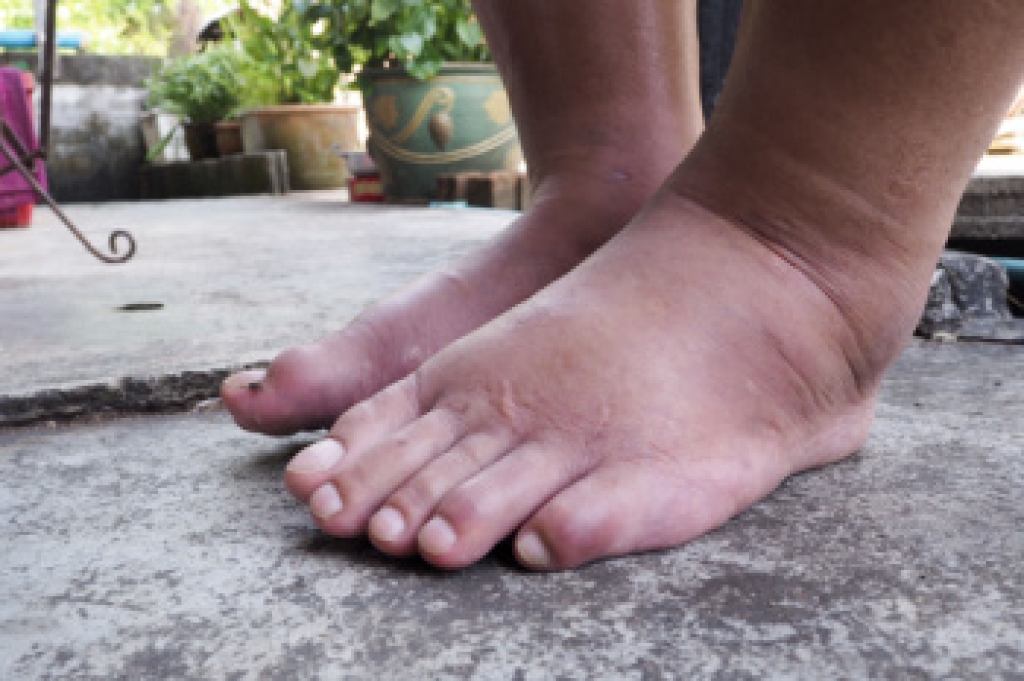
An ingrown toenail occurs when the edge of the toenail grows into the surrounding skin, often leading to pain, swelling, and redness along the toe. It may feel tender to the touch, especially when wearing shoes, and in some cases can become infected, causing pus or increased warmth in the area. Common causes include improper nail trimming, tight footwear, toe injuries, or genetic predisposition. Symptoms typically begin with mild discomfort and can progress to severe pain, if left untreated. A podiatrist can diagnose an ingrown toenail through a physical examination and assess whether there is any infection or underlying issue. Treatment options include soaking, lifting the nail, partial nail removal, or in chronic cases, removing part of the nail root. Proper nail care education and footwear recommendations can also help prevent future occurrences. It is suggested that you make an appointment with a podiatrist at the first sign of discomfort to avoid complications and receive effective, lasting relief.
Ingrown toenails can become painful if they are not treated properly. For more information about ingrown toenails, contact one of our podiatrists of Lakeside Foot and Ankle Center. Our practitioners can provide the care you need to keep you pain-free and on your feet.
Ingrown Toenails
Ingrown toenails occur when a toenail grows sideways into the bed of the nail, causing pain, swelling, and possibly infection.
Causes
- Bacterial infections
- Improper nail cutting such as cutting it too short or not straight across
- Trauma to the toe, such as stubbing, which causes the nail to grow back irregularly
- Ill-fitting shoes that bunch the toes too close together
- Genetic predisposition
Prevention
Wearing proper fitting shoes and using proper cutting techniques will also help decrease your risk of developing ingrown toenails.
Treatment
Ingrown toenails are a very treatable foot condition. In minor cases, soaking the affected area in salt or antibacterial soaps will not only help with the ingrown nail itself, but also help prevent any infections from occurring. In more severe cases, surgery is an option. In either case, speaking to your podiatrist about this condition will help you get a better understanding of specific treatment options that are right for you.
If you have any questions, please feel free to contact our offices located in Leesburg and The Villages, FL . We offer the newest diagnostic and treatment technologies for all your foot care needs.




